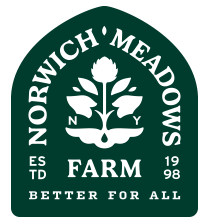Soil Health Practices
What Makes Healthy Soil?
"Soil is an ecosystem full of life that needs to be carefully managed to regain and maintain the ability to function optimally."
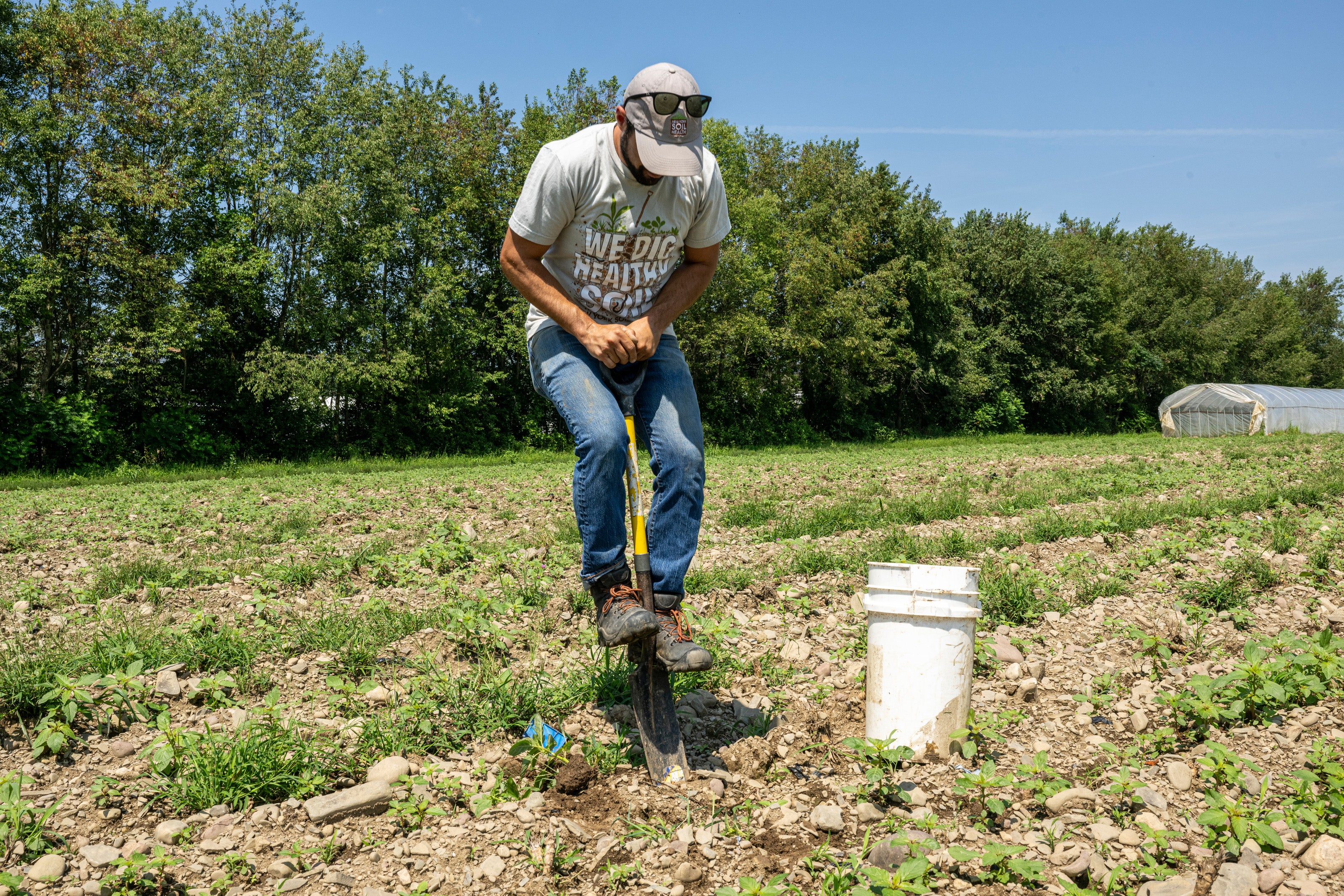
Functions of Healthy Soil
Cornell University identifies these functions of healthy soil:
• Retaining and cycling nutrients
• Supporting plant growth
• Sequestering carbon
• Allowing infiltration, and facilitating storage and filtration of water
• Suppressing pests, diseases, and weeds
• Detoxifying harmful chemicals
• Supporting the production of food, feed, fiber, and fuel
(Cornell University's Comprehensive Assessment of Soil Health )
Norwich Meadows Farm brings together traditional knowledge and science to achieve extraordinary soil health and agricultural productivity.
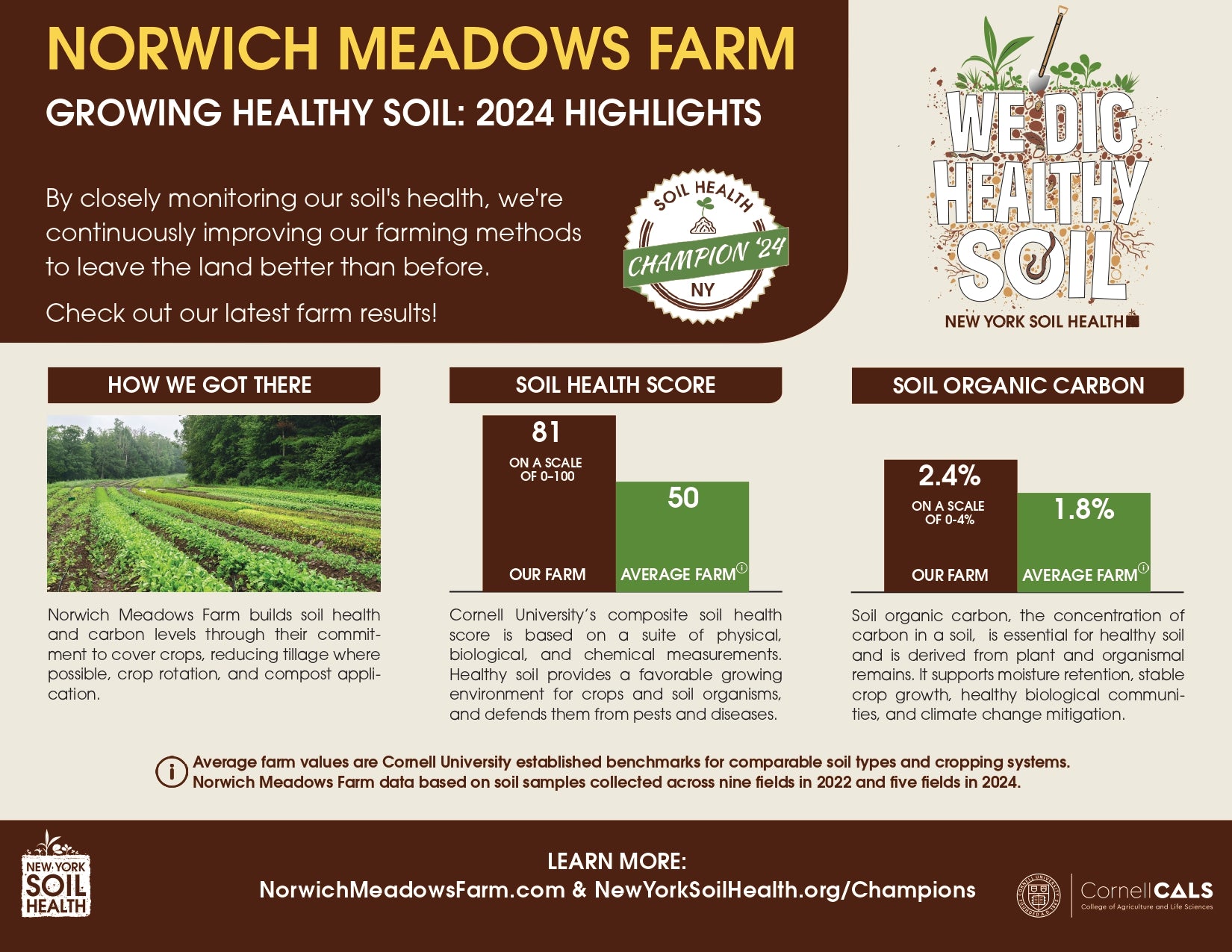
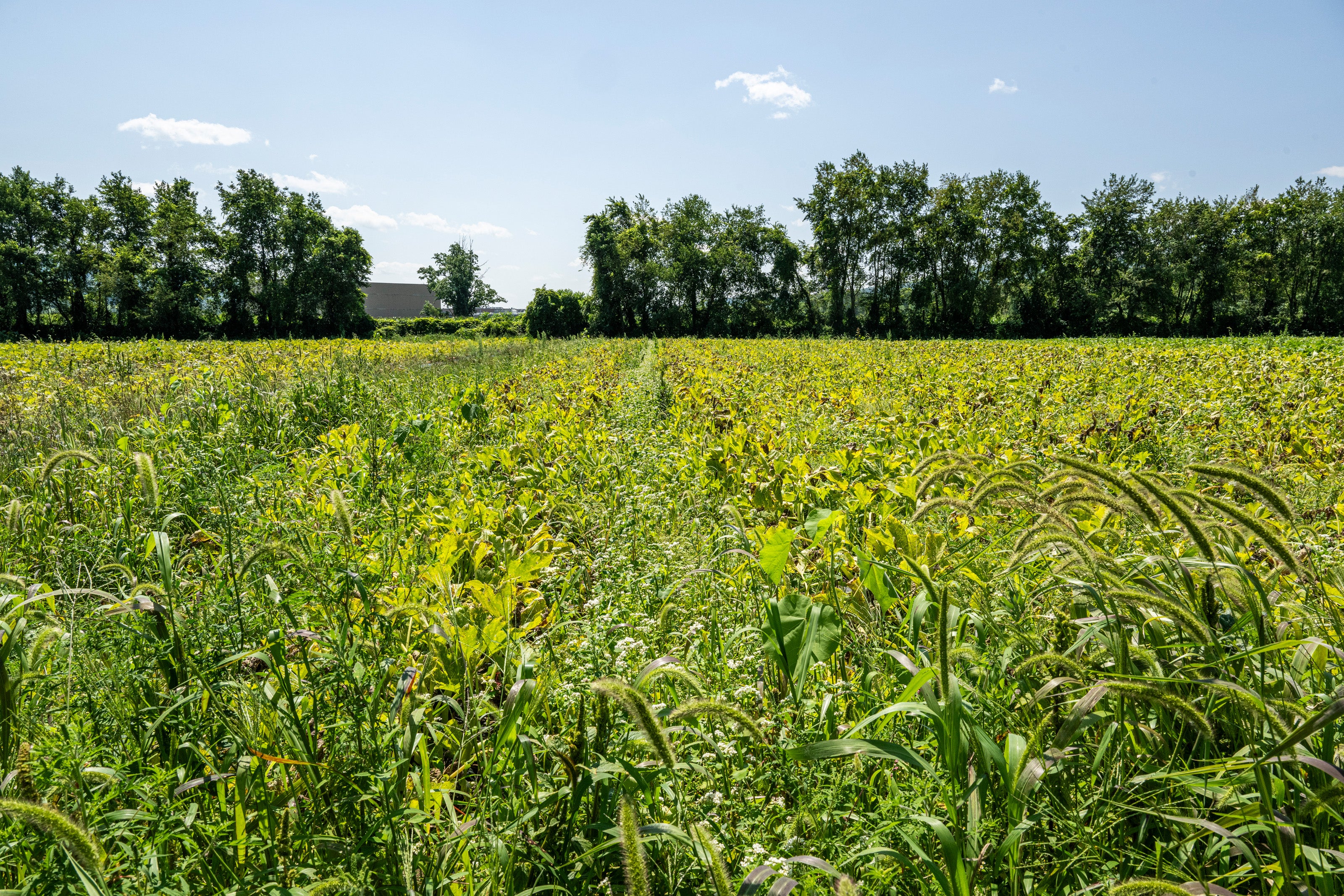
Cover Cropping
Organic agriculture utilizes cover cropping and other sustainable practices to maximize production in harmony with natural systems. In contrast, conventional farming relies heavily on synthetic fertilizers, pesticides, and GMOs, causing unintended consequences like water pollution, soil erosion, and biodiversity loss.
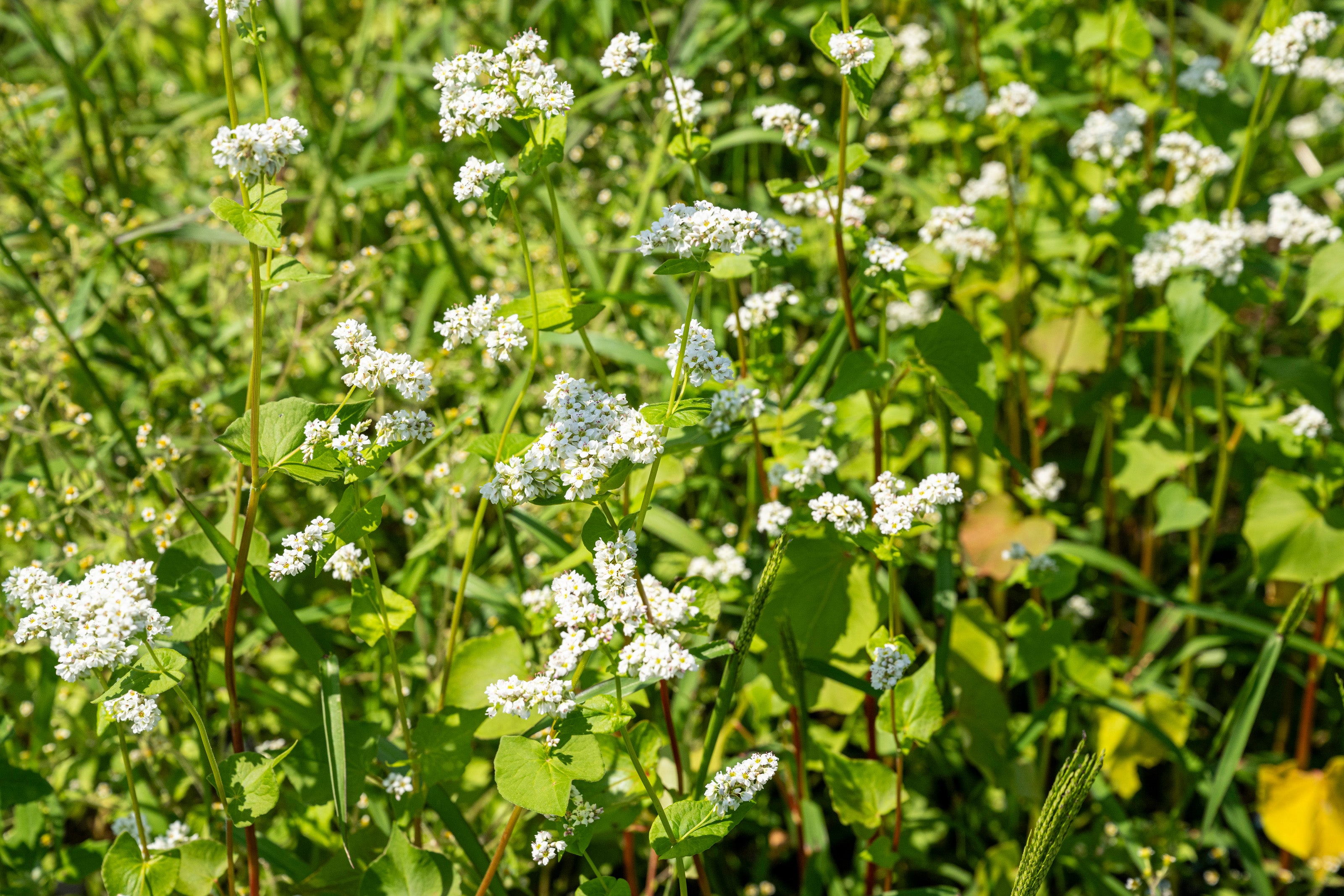
Cover crops differ from cash crops, like corn and soybeans, which generate direct profit for farmers. The primary role of a cover crop is environmental, planted between cash crop cycles to prevent soil erosion, nutrient loss, and weed proliferation.
Cover crops function as living mulch, enhancing water availability and farm biodiversity. Cover crops at Norwich Meadows Farm may include mustard, alfalfa, rye, clovers, buckwheat, cowpeas, radish, vetch, Sudan grass, and Austrian winter peas.
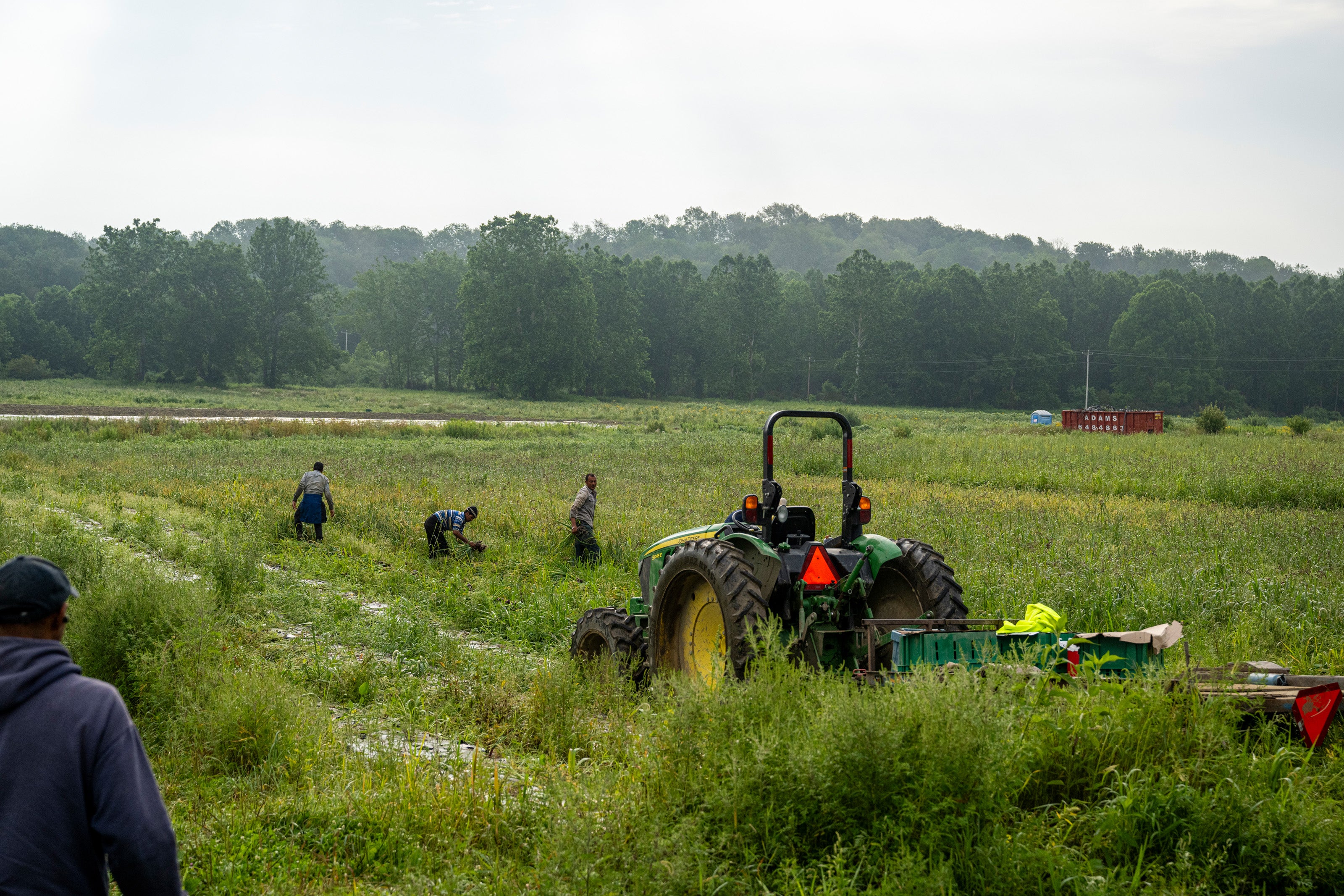
Certain cover crops, like nitrogen-fixing varieties, restore soil fertility naturally, without chemicals; the root systems of others improve the condition of the soil or increase the availability of nutrients for the next crop.
Cover crops are vital in organic no-till farming, serving dual purposes for profit and soil health. By maintaining green growth year-round, cover crops help sequester carbon and combat greenhouse gas emissions
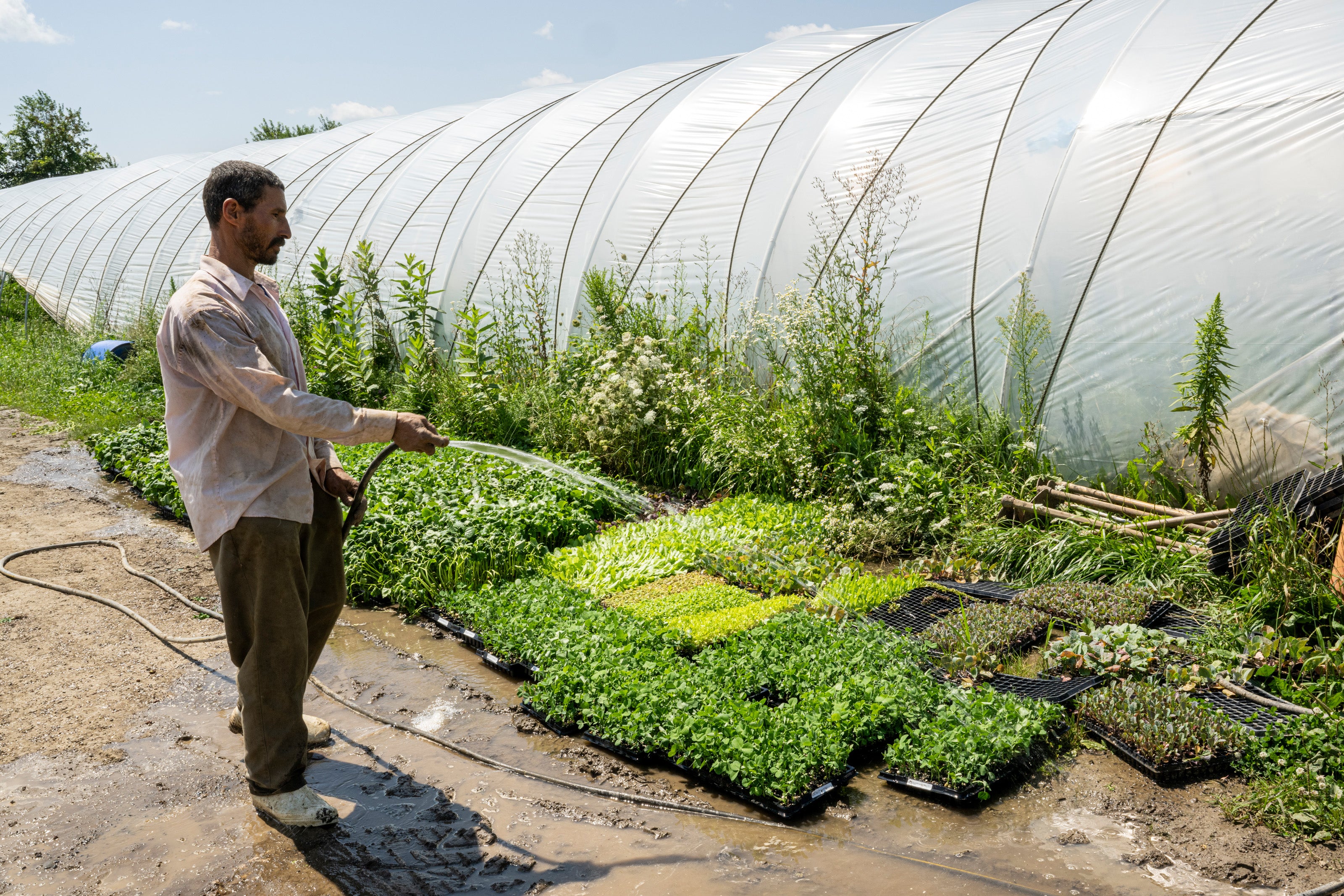
Crop Rotation
This vital agricultural practice involves planting different crops in succession on the same land to enhance soil quality, optimize nutrient levels, and manage pests and weeds effectively. In a classic conventional rotation, a farmer may follow corn with soy beans to restore nitrogen to the soil, as corn depletes it.
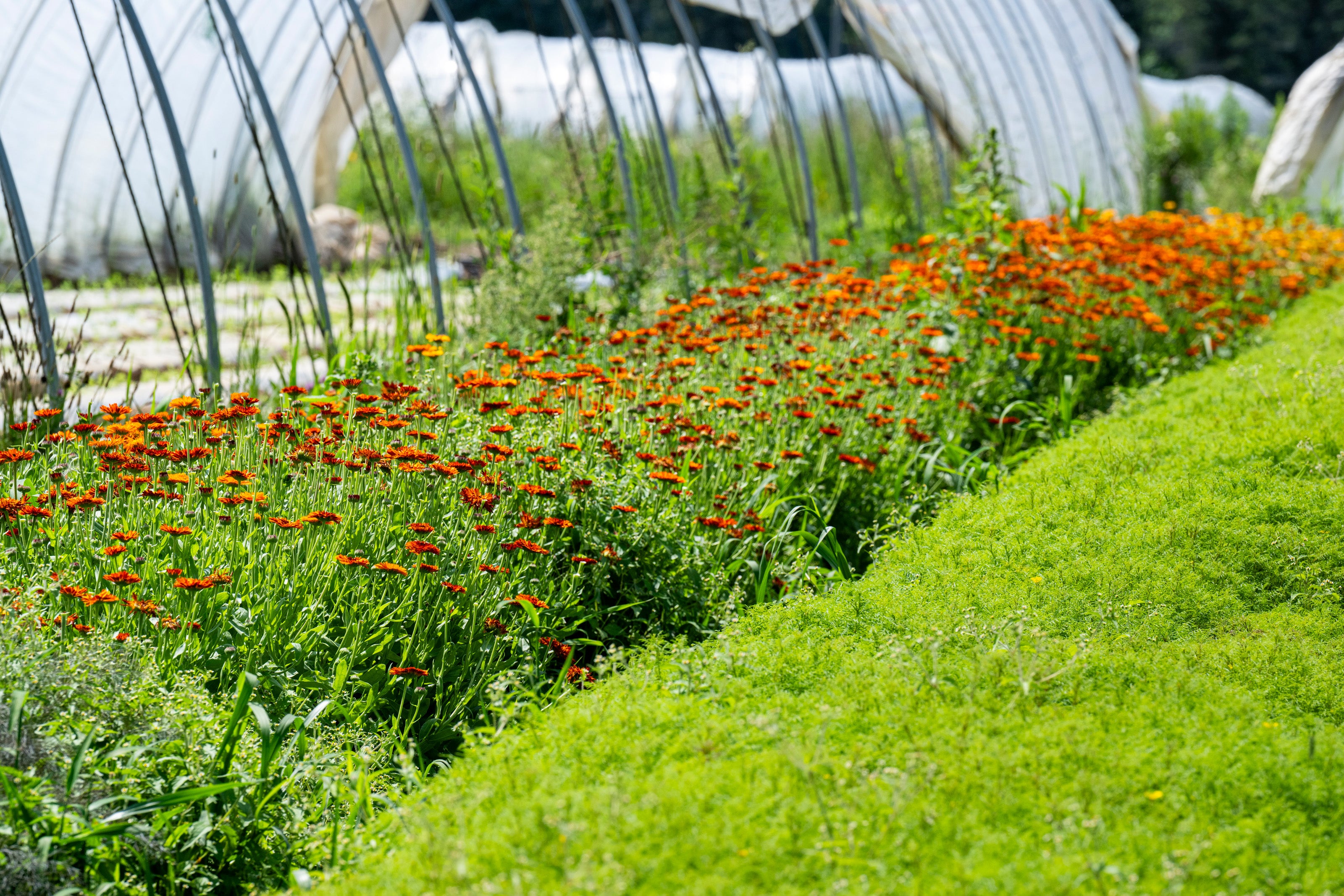
Each plant has distinct nutrient requirements and vulnerabilities to pests and diseases. Continuous monoculture farming depletes soil nutrients, creating ideal conditions for pests and diseases, and necessitating increased chemical inputs.
Crop rotation replenishes soil nutrients naturally and disrupts pest and disease cycles. It fosters soil health through varied root structures, enhances biodiversity, and attracts beneficial insects and pollinators.

Reduced Tillage
Since the dawn of agriculture, farmers have tilled the soil to prepare the soil for planting, control weeds, incorporate fertilizer and crop residues from the soil surface. However, tillage involves soil disruption, which can result in compaction, erosion and disrupts soil structure and vital underground biological systems. Some conventional farms adopt no-till approaches which avoid these negative impacts of tillage but require the extensive use of herbicides and genetically-engineered crops.
We strike a balance within our organic system to minimize tillage with a range of traditional methods.
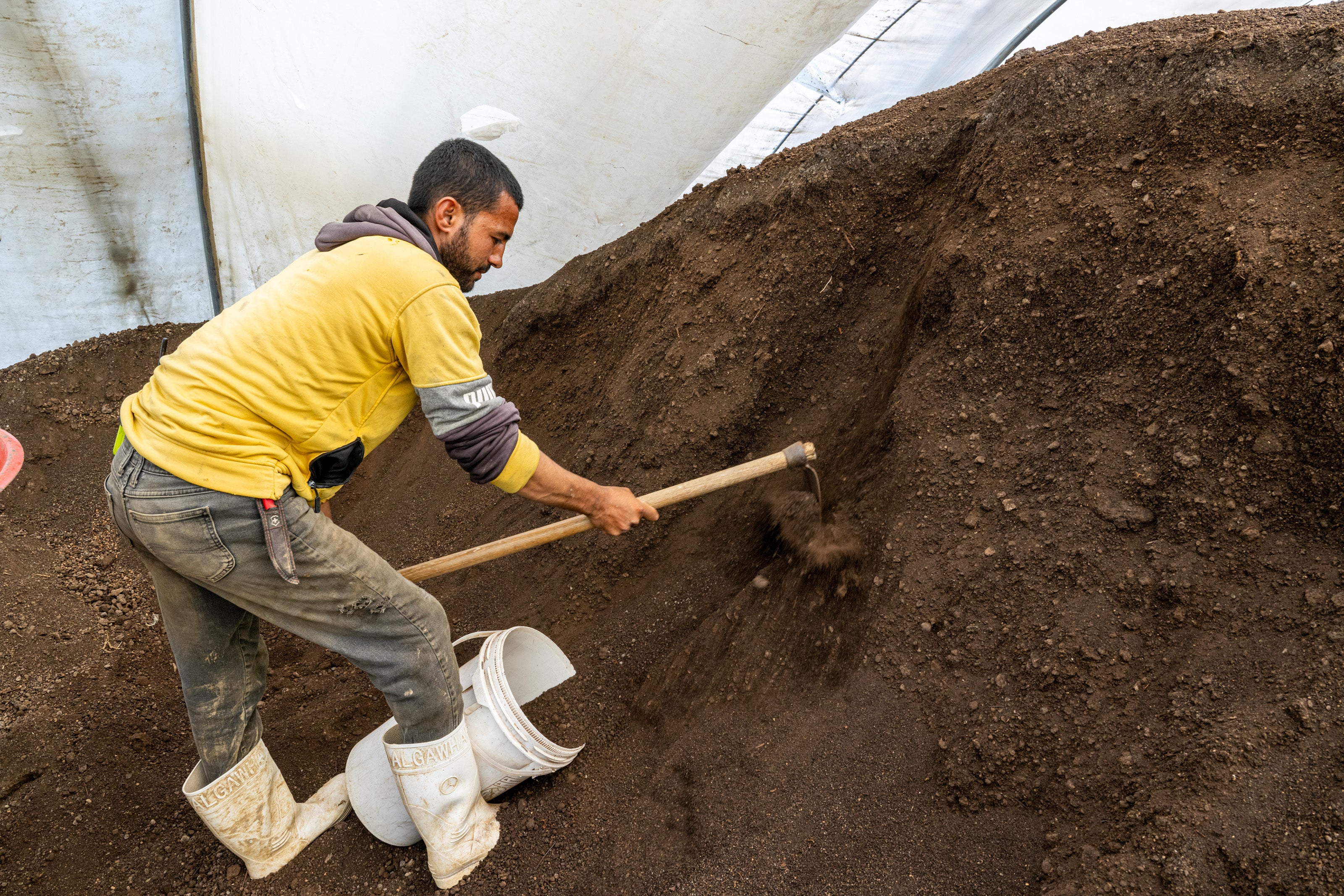
Compost
Compost is the result of aerobic decomposition involving various waste materials, such as food scraps, animal manure, leaves, and straw.
This process combines carbon-rich materials (known as "browns," like straw and leaves) with nitrogen-rich materials ("greens," such as food scraps and manure), alongside oxygen, time, careful management, and the assistance of countless microorganisms.
The outcome is nutrient-rich, sweet-smelling compost.
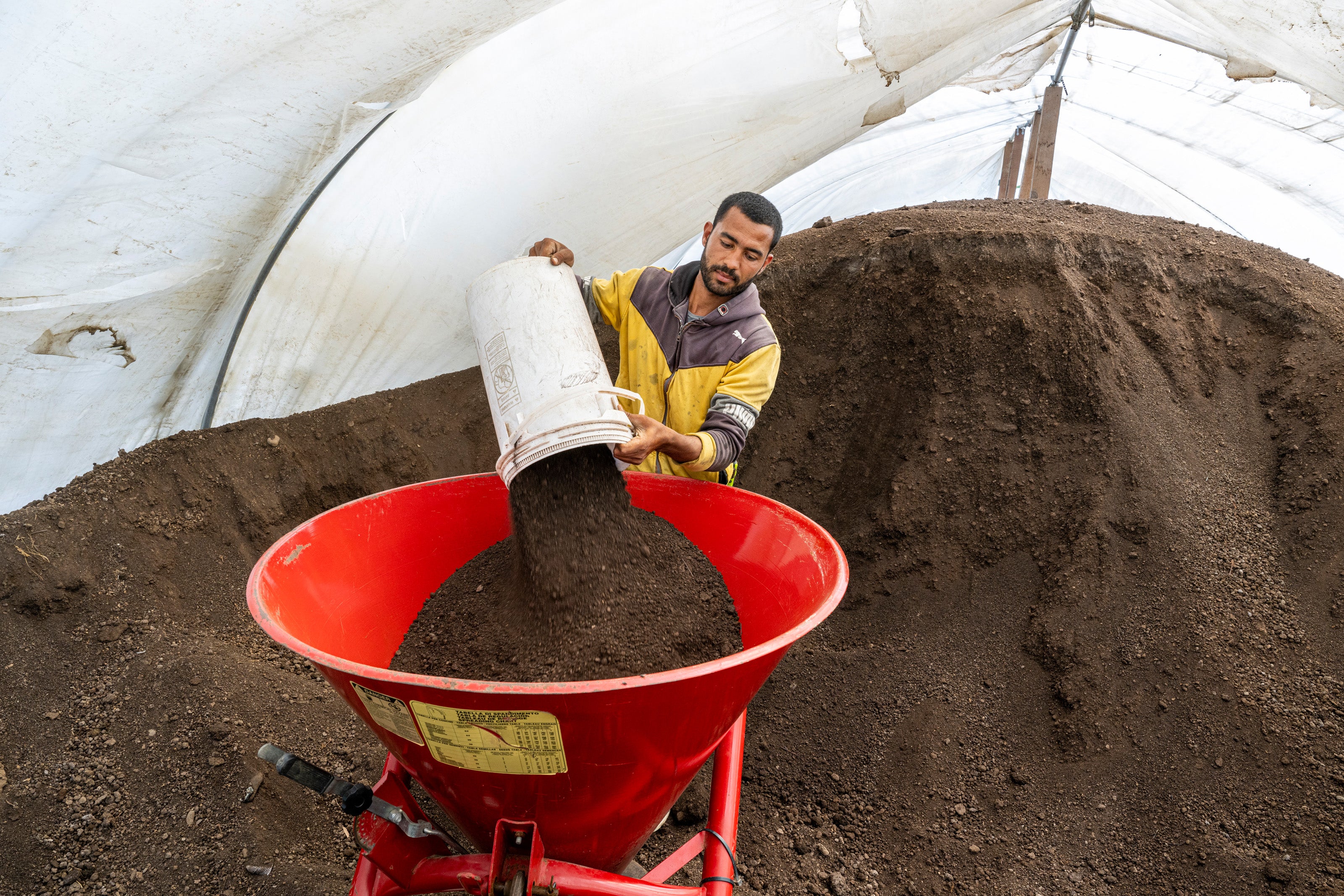
Thanks to microorganism activity, even in winter, large compost piles can reach internal temperatures of up to 170 degrees Fahrenheit.
Unlike conventional farmers who rely on synthetic, petroleum-based fertilizers that can harm the environment, organic farmers turn to compost.
Compost significantly reduces the need for chemical inputs and recycles farm materials, contributing to sustainability.
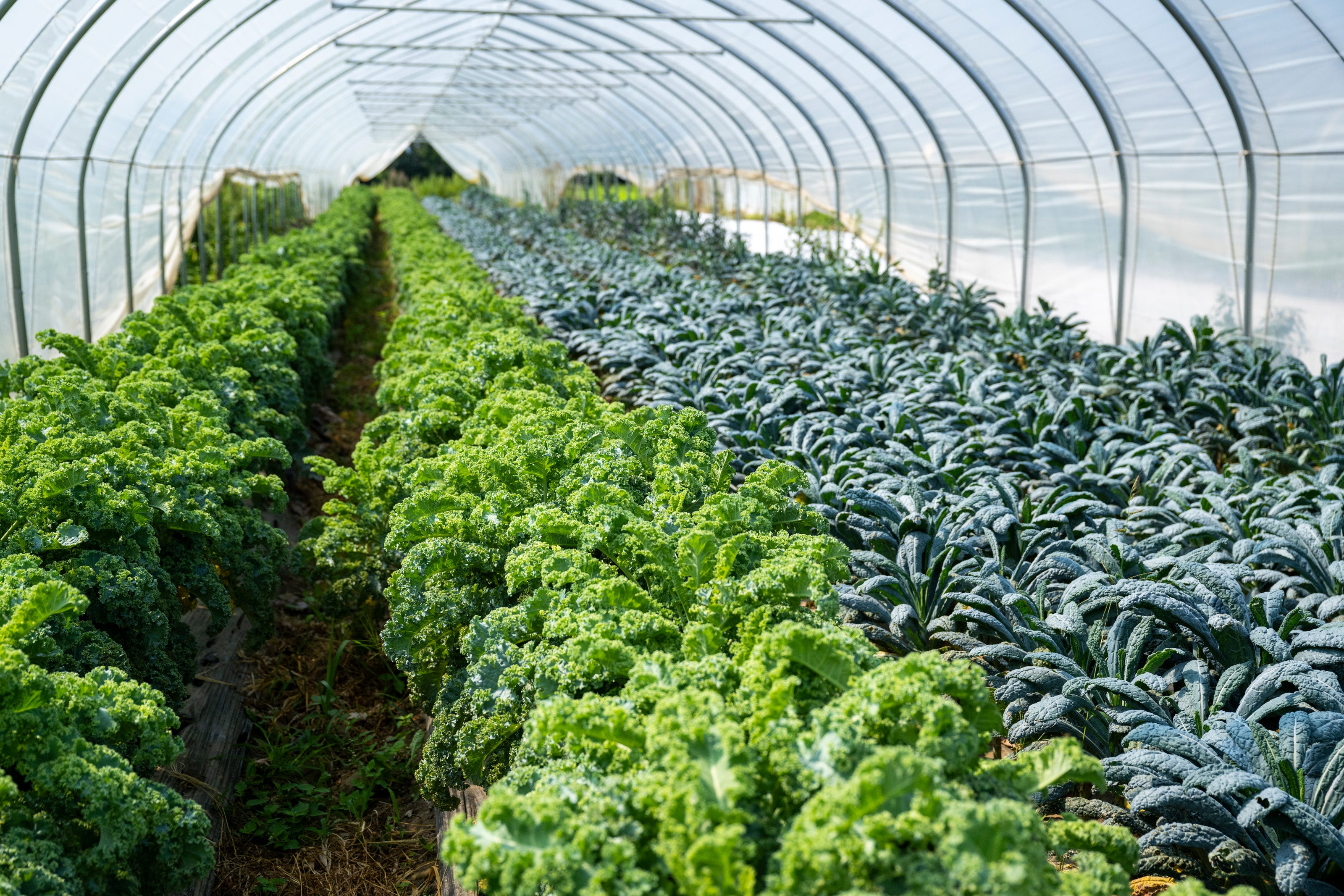
When added to the soil, compost enriches it with a variety of microorganisms and essential nutrients, promoting robust plant growth and development.
It's an eco-friendly alternative to synthetic fertilizers, benefiting both agriculture and the environment.
Mindful stewardship of soil health is the key to everything we do at Norwich Meadows Farm

